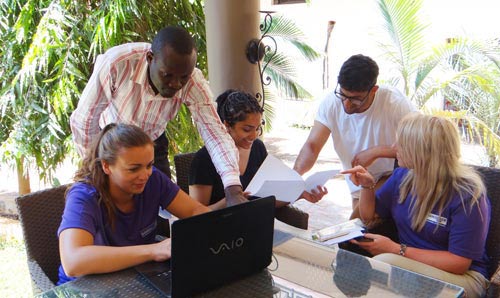
Careers and employability
There are many possibilities for graduates of the subject areas of disaster management, humanitarian response, and global health.

The general and academic skills acquired on our courses are welcomed by a broad spectrum of employers, including:
- international organisations such as the United Nations (UN) and the European Union (EU);
- local and national government;
- non-governmental organisations such as Save the Children, Médecins Sans Frontières, and Mines Advisory Group.
Please see our courses for more details about career opportunities.
Careers Guides
Studying at HCRI provided me with an invaluable foundation for my career in humanitarian work. The curriculum, combined with the expertise of the faculty, equipped me with both the theoretical knowledge and practical skills necessary to navigate the complex world of humanitarian crises.
Dr Ali Almohammed / Emergency Medical Coordinator at MSF Holland
HCRI is committed to inspiring the next generation of humanitarian practitioners and researchers.
Our Careers Guide can help you decide which course to study and obtain the right career after graduation. We have also created the Greater Manchester Humanitarian Directory, to support students seeking work and volunteering in the region.
Studying at HCRI will give you a wealth of career options due to our multidisciplinary approach to our teaching, research and fieldwork, as well as our many third sector and government partnerships. Our community includes social scientists, medical students and humanitarian professionals who have gone into a wide range of roles.
Our alumni case studies and the Careers Service's Government, charity, international development, work and related areas page provide examples of career routes after your studies at HCRI.
Events
Every February/March, HCRI organises career events for students to hear from alumni working in the humanitarian sector, and begin thinking about their own career journeys.
Our events have included high-level speaker sessions, bespoke workshops, simulation exercises and careers fairs, plus supporting careers days organised by our student society.
Content from our 'Careers Afternoons' programme in 2024/25 is on the HCRI blog and for 2023 is also on the HCRI blog.
